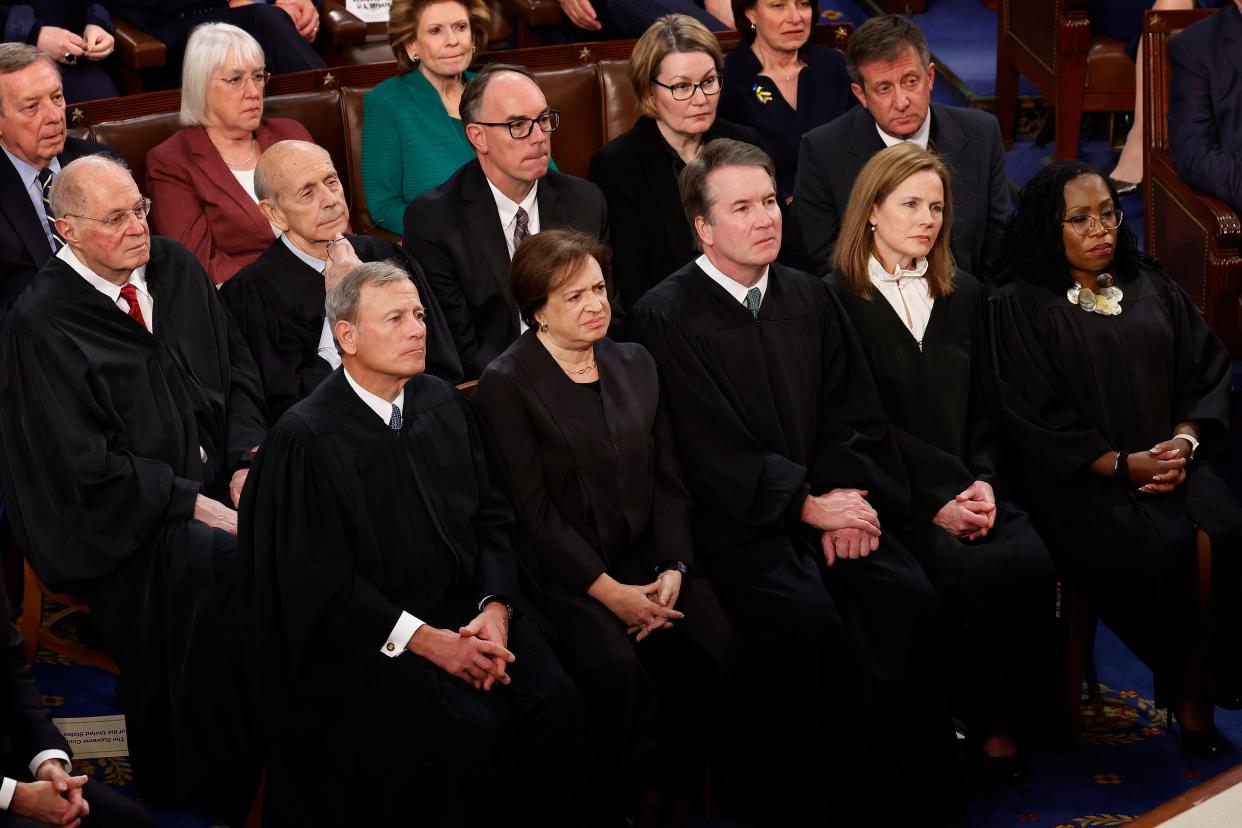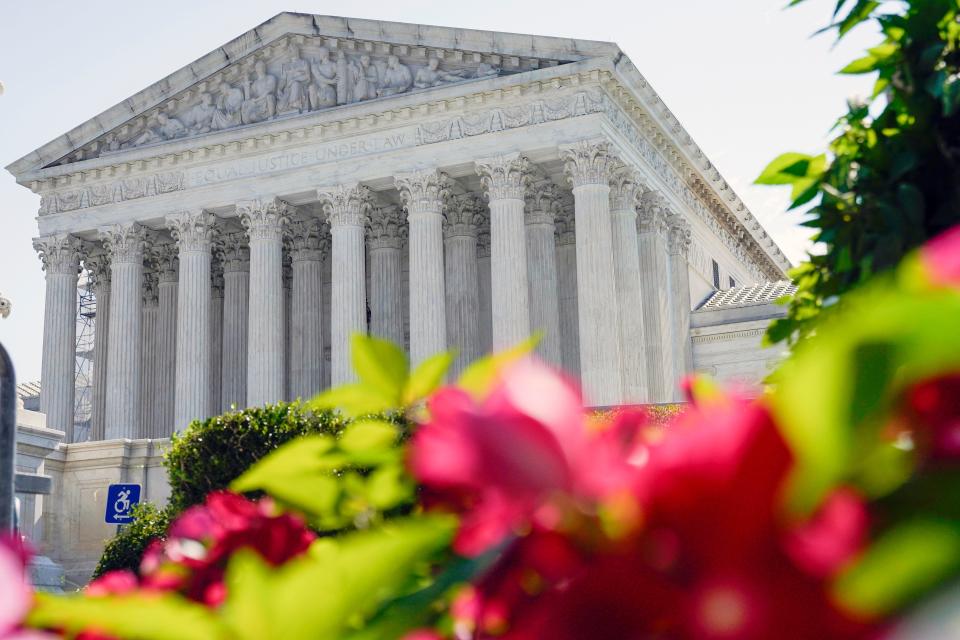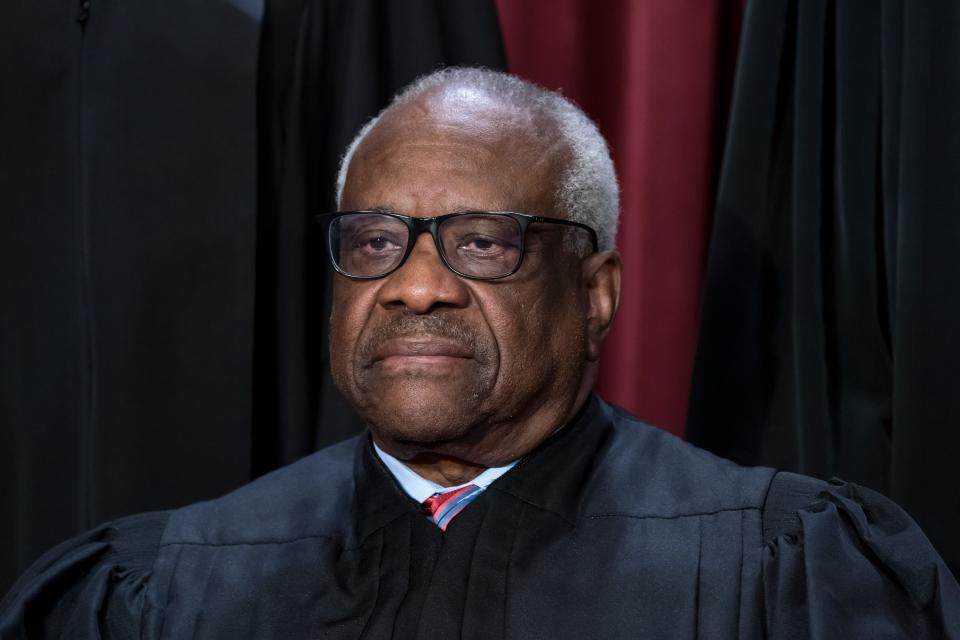Supreme Court decisions should be reviewed by federal judges | Opinion

- Oops!Something went wrong.Please try again later.
- Oops!Something went wrong.Please try again later.
Although it is not often expressed bluntly, America was founded on the premise that human nature is fundamentally inclined towards evil, and the more power one obtains, the more this propensity towards evil expands. Thus, the nation’s founders instituted a "check-and-balance" system, consisting of the legislative, executive, and judicial branches, and designed it to ensure that no individual or oligarchy could abuse government power.
To buttress this belief, it was decided that members of at least one branch of government had to be removed from the pressures and demands of running for elected office, so the judiciary was created with the idea that by giving federal judges and Supreme Court justices lifetime tenure, they would be immunized from the demands of voters and elected officials, and not have their integrity compromised by the need for constant fundraising.
It wasn’t long, however, before there was an attempt to exploit the ramifications of this lifetime tenure. In fact, it occurred with America’s second president, John Adams. After Adams lost the presidential election of 1800, he decided to thwart the aspirations of the incoming president, Thomas Jefferson (in what became known as the "Midnight Appointments"), by nominating a plethora of federal judges that supported his policies and opposed Jefferson’s. The confirmations of these judges were rushed through the Senate and approved shortly before Jefferson took office.
Adams’s miscalculation was that he had left it up to Jefferson to deliver some of the commissions to these newly appointed judges, which Jefferson refused to do; therefore, one of these appointees, William Marbury, sued Jefferson’s Secretary of State, James Madison, in the United States Supreme Court seeking an order that his commission be delivered.

In a landmark ruling that still resonates to this day, the Supreme Court used Marbury’s case to establish the right of federal courts to conduct judicial review to determine the federal constitutionality of laws and/or acts passed by the states and the other two federal branches of government.
Reflecting back on Adams’s machinations, it is surprising that America’s founders had been so cynical about human nature and so naïve at the same time. As is increasingly evident today, even one-term presidents, through judicial appointments, can negatively impact a nation for decades, and the lack of accountability afforded by the federal judiciary’s doctrine of lifetime tenure − which is only terminated by retirement, impeachment, or death − can enhance the temptation for power abuse more readily than someone who repeatedly has to answer to voters.
So, regardless of the contempt the so-called conservative justices of the current Supreme Court repeatedly display for long-standing legal precedents; how devoid they are of ethics; how dismissive they are of the rights of anyone who is not white, male, rich, Christian, and heterosexual; and how vociferous the condemnations against them have been, they can simply laugh about the injustices they create, and nothing can be done about it.
Or maybe something can. Some solutions that have been proposed to neuter the rogue "justices" that now dominate the Supreme Court is to add more members and/or set term limits.

But there is a third solution: All Supreme Court decisions, and the reasoning behind them, would be required to be judicially reviewed and voted upon by every federal district and appeals court judge in the United States. Voting would be conducted on a graduated system, contingent upon how the justices originally voted. A 5-4 decision would be nullified if 51% of the federal judges voted to overturn it; a 6-3 decision would require a minimum of 61% to overturn; a 7-2 decision, a minimum of 71%; an 8-1 decision, a minimum of 81%; and a 9-0 decision, a minimum of 91%.
This review would also examine if justices should have recused themselves from a particular case, if they had any financial interests in its outcome, and if a ruling is sufficiently supported by legal precedent, and not, as we are increasingly seeing today, simply personal opinions and biases wrapped in specious contortions that feign to be law.
This solution would also not upset the Constitution’s "check-and-balance" system since it is entirely contained within the judicial branch itself. In addition, it would provide similar oversight that is currently implemented in the legislative and executive branches, where the president can veto an act of Congress, and Congress can vote to override this veto.
Logic should dictate the inanity of allowing the rights, futures, and lives of millions to be devastated by the number of people you can count on one hand. America’s founders got the check-and-balance idea partially correct. Justice, fairness, a viable future, accountability, and common human decency require the nation to go the rest of the way and check-and-balance the United States Supreme Court.David R. Hoffman lives in South Bend, IN, and is a retired civil rights and constitutional law attorney.

This article originally appeared on Cincinnati Enquirer: Supreme Court decisions should be reviewed by federal judges | Opinion

